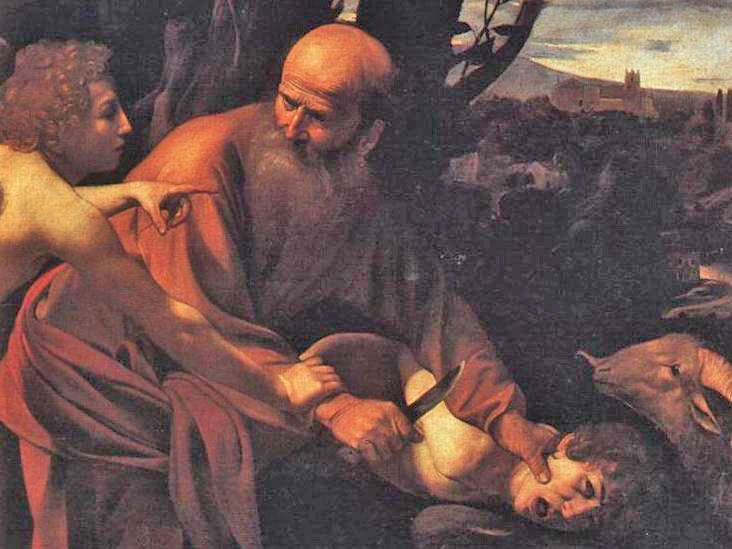Abrahamic Religions The precise time at which monotheism, the worship of one god, appeared is not known. It most likely arose in the Middle East, probably in Mesopotamia. The three major monotheistic religions, Judaism, Christianity, and Islam, all trace their roots back to one individual: Abraham, who probably lived sometime after 2000 BC. According to the Hebrew Bible (the Old Testament), Abraham emigrated from Ur a city of Sumer on the Euphrates River (Fertile Crescent) northwest of the Persian Gulf to Canaan (roughly, the area now called Israel). Abraham may have been a caravan merchant, though the Bible presents him only as a pastoralist. The dominate theme of the story of Abraham: the fulfillment of God’s purpose and promise in spite of all hindrances. The ‘ancestors’ of Israel are: The accuracy of the legends about Abraham,
Isaac, and Jacob is still defended by determined believers, but a stronger case can be made for the view that these
were legends about the founders of Palestinian shrines whom the Israelites (Jews), after their conquest of
Palestine, adopted as ancestors. Abraham is unable to have children with his wife, Sarah, for she is sterile. Sarah presents Hagar, her Egyptian maid, to Abraham so to have an heir. Abraham and Hagar give birth to Ishmael. Years later God’s eventually fulfills his promise to Abraham’s right to his own progeny. Abraham and Sarah give birth to Isaac. In Genesis 22 God seems to challenge his own promise by demanding that Isaac be offered as human sacrifice, but rewards Abraham’s unquestioning obedience by providing a ram as a substitute at the last possible moment. This story (the Akedah) is important in Judaism for it is a reminder of the precariousness of Israel’s election and the sure promises of God. Isaac marries Rebekah and produces two sons, Jacob and Easu. Later in life Jacob’s name is changed to Israel after his successful all-night wrestling match with an unnamed divine being. Genesis 32:28 reports God’s words to Jacob: “You shall no longer be called Jacob, but Israel, for you have striven with God and with humans”. The Biblical story continues with Israel (Jacob) immigrating with his family to Egypt where his twelve sons fathers twelve tribes (the ‘Tribes of Israel’). Thus the ‘children’ of Israel in Egypt are known as the ‘Israelites’. One of Jacob’s sons was Judah who later became the leader of the ‘Tribe of Judah’ which later became the Kingdom of Judah, from whom the religion ultimately gets its name. Once Jacob and his children settled in Egypt the Old Testament knows practically nothing of their stay – a clear indication that there was no continuous tradition connecting the pretended ‘patriarchal period’ of the 18th century BC with the exodus, which by Biblical chronology would have to be dated in the first half of the 13th century. After the birth of Jacob (the ‘rightful’ son who becomes ‘Israel’), Hagar and Ishmael are cast out from Sarah’s household into the wilderness. A divine messenger rescues them when their water runs out and proclaims that Ishmael too will become a great nation. Like Jacob, Ishmael is the father of twelve sons, the ancestors of twelve tribes. The themes of Ishmael, like Cain, is classic,
as seen in many novels and movies: the outcast; prone to violence; the wanderer. The story of Ishmael and
Hagar’s separation from Abraham’s household contains many deep-rooted themes: In Muslim (Islamic) tradition, the Arabs trace their ancestry back to Abraham through Ishmael, and makes Ishmael rather than Isaac the son Abraham was commanded to sacrifice. Abraham, assisted by his son Ishmael, built the Kaaba, the shrine in the center of the Great Mosque in Mecca, Saudi Arabia. For followers of Islam, the Kaaba is the most sacred place on Earth. z
|
